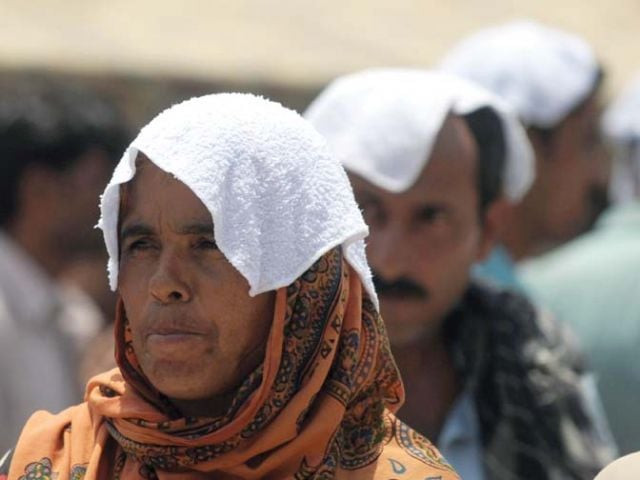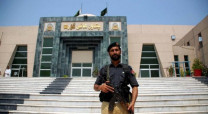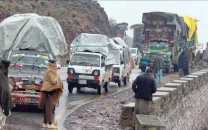Scorching summers : Looming heatwave alerts medics
Climate change and poor urban planning have intensified the weather, raising the likelihood of heatstroke

As summers approach their peak season, the devastating consequences of climate change coupled with poor urban planning in the northern province, have left healthcare experts worrying about the well-being of masses exposed to the blazing sun.
With the country still recovering from the destruction of the floods, environmental scientists predict that an unprecedented heat wave might hit the province from June to August this year, raising valid concerns among healthcare experts who anticipate a public health emergency.
“Exposure to extreme heat can easily cause dehydration especially among high-risk groups like children and the elderly, which can culminate into a deadly heatstroke, hypotension, severe muscle cramping, diarrhea and many other health hazards,” warned Dr. Muhammad Hussain, President at the Pakistan Pediatric Association of Khyber-Pakhtunkhwa (K-P), who further urged the state authorities to regulate cautionary measures, which might help abate the dangers facing citizens in the upcoming heat wave.
According to reports circulated by the World Bank and Amnesty International, Pakistan has borne the brunt of climate change, since it regularly experiences some of the highest temperatures in the world, and recorded just recently the highest temperature in the country during the past 60 years, with many regions having temperatures shoot up to 38 degrees Celsius and above on an annual basis.
“The past pattern of shooting temperatures predicts that the heat wave might hit K-P during June, July and August,” forecasted Dr. Hizbullah Khan, a professor from the Environmental Science Department at the University of Peshawar, while talking to The Express Tribune.
Where Dr. Khan believes that climate change has exacerbated the frequency of harsh weather conditions in K-P, as seen in the recent hailstorm which destroyed several crops, he also blames poor urban planning in the country, which is incompatible with the rising temperatures and inflames its effects on the populace.
“Most of our populated cities like Peshawar have substandard landscape planning, which means that properties are built on agricultural land and deforestation occurs on a large scale. When the cooling effect of greenery is no longer present, insufferably high temperatures become the norm,” elucidated Dr. Khan.
Dr Khan’s assertion is supported by precedent, with the 2015 heat wave in Pakistan targeting almost 65,000 people, all of whom required hospital treatment for the heat stroke.
Speaking to the Express Tribune on the hazards of the impending heat wave, Abdul Basit, Secretary of Relief at the Rehabilitation and Settlement Department said,” We have identified vulnerable populations, such as the elderly, children, and individuals with chronic medical conditions, and have devised a plan of action to combat the perils of the heat wave in order to protect these groups from the adverse effects of the scorching weather.”
Published in The Express Tribune, June 26th, 2023.


















COMMENTS
Comments are moderated and generally will be posted if they are on-topic and not abusive.
For more information, please see our Comments FAQ